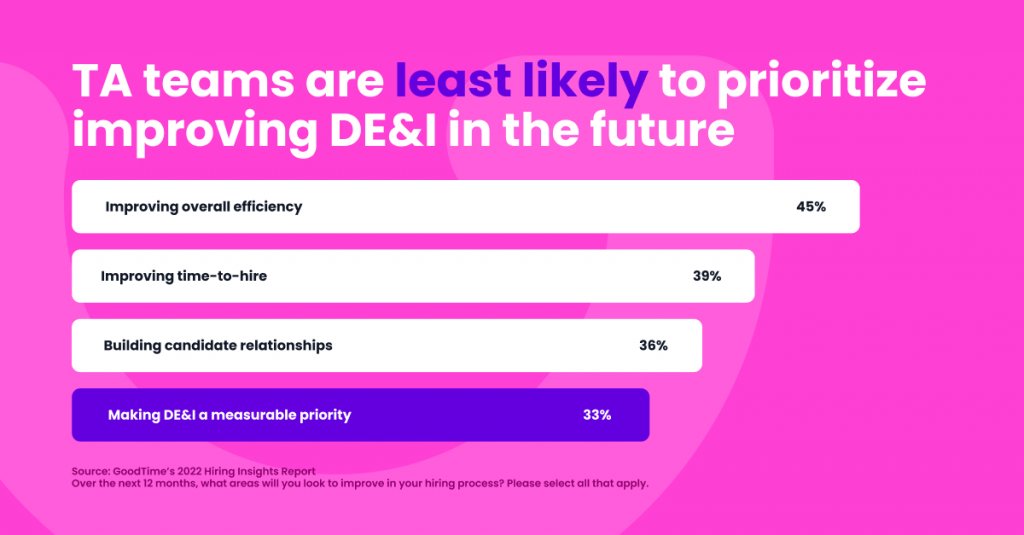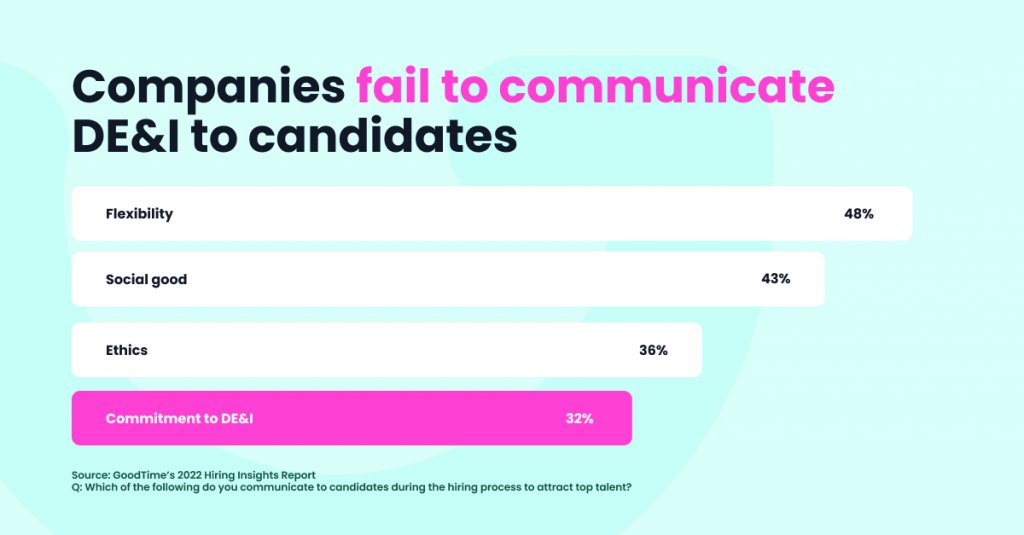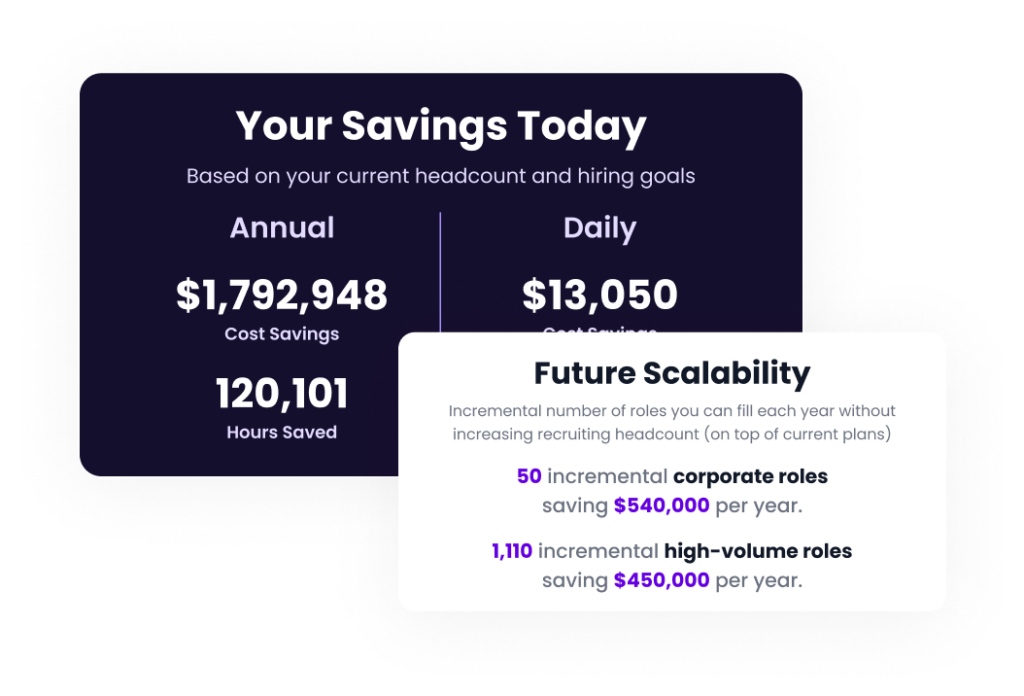DEIB is a hot topic among HR professionals, and rightfully so. Conveying a commitment to DEIB in hiring not only attracts candidates, but also benefits your bottom line.
Companies that emphasize DEIB come out on top. However, our 2022 Hiring Insights Report shows that these companies are few and far in between. The report features responses from 560 HR, talent, and recruiting leaders across the U.S. on their most critical challenges. We found that despite the buzz surrounding DEIB in hiring, active commitments are scarce.
Few Companies Prioritize DEIB in Hiring
Take a scroll through LinkedIn and you’re bound to come across at least one post on the importance of DEIB. No matter the industry, people keep talking about how crucial it is for organizations to prioritize diversity, equity, inclusion, and belonging.
…But is this all just talk? Or is there action behind these conversations? Unfortunately, the responses from our report aren’t too hopeful. When asked to identify what they improved in their hiring process over the past 12 months, making DEIB a measurable priority was the least selected option (31%). The next 12 months look just as bleak. Only 33% of companies plan on prioritizing DEIB in the year ahead—still the least selected option. Oof.

Failing to prioritize DEIB is simply bad for business. In fact, diverse teams produce 19% higher revenue. But finances aside, focusing on DEIB just makes sense. Today’s Distance Economy opens the talent pool to a wide range of diverse candidates. Those candidates don’t just want to see an emphasis on DEIB in the hiring process—they expect it.
Disconnect Between DEIB and Employee Well-being
Sorry to be the bearer of more bad news, but the data doesn’t lie. Our report shows a disconnect between employee well-being and DEIB—a crucial component that goes into creating that well-being.
When asked what they communicate to candidates during the hiring process, the lowest percentage of companies (32%) selected a commitment to DEIB. But here’s the catch: the highest percentage of companies (59%) chose employee well-being.

DEIB and employee well-being should go hand in hand, especially when it comes to recruiting diverse candidates. If a candidate is part of an underrepresented community, is a company really considering their well-being when their commitment to DEIB is last in line?
The smartest companies communicate DEIB to candidates. Need proof? The average time-to-hire among the 179 companies that communicate DEIB to candidates is two and a half weeks, shorter than average (three weeks). A lack of communication on DEIB leads to fewer applicants, rejected offers, and less diverse teams.
Remote Companies Pick up the Slack—Slightly
While our report pinpoints multiple areas where remote talent teams falter, committing to DEIB isn’t one of them.Thirty-eight percent of remote teams plan on making DEIB a priority in the next 12 months, making them more likely to emphasize DEIB than their in-person counterparts.
When considering the previous bleak data points on DEIB in hiring, this statistic seems like a sign for hope. In a way, it is. But let’s be real: companies could do better. Much more than 38% of remote workplaces should focus on DEIB. This percentage is a fine start, but if remote teams want to draw in diverse applicants, more teams need to kick DEIB initiatives into high gear.
All in all, with 63% of remote companies agreeing that the hiring landscape will become more competitive in the coming months, keeping DEIB top of mind is the best decision. A commitment to DEIB is high on the average candidate’s wish list. The companies who openly convey this commitment possess a major advantage in snagging the best talent.
The C-suite Must Step Up
Let’s make one thing clear: despite the needs for improvement, making a high-quality DEIB program is a lot easier said than done. Uplifting DEIB across an organization can be a big undertaking, especially for companies with limited resources and people to get the job done.
Yes, the data shows that most talent teams stumble in conveying DEIB to applicants, but this isn’t all their fault. DEIB must start at the top. Having a CEO who includes DEIB in their company roadmap is a major asset. In order for talent teams to fully breathe life into DEIB, the C-Suite needs to partner with them.
Want the Latest Insights? Read the 2023 Hiring Insights Report
Keeping up with the latest happenings in the hiring landscape is the key to staying ahead of the game. Lucky for you, we have plenty of information on the most crucial hiring trends.
Want the latest hiring insights? Get excited: our 2023 Hiring Insights Report is now available. 500+ HR leaders, 1,000s of real findings, 1 industry-leading report. Read the report today.
Does interview scheduling automation make sense for my team?
ROI is key. This is not a time to invest in software that won’t bring you immediate value. So let’s eliminate the guesswork with our free ROI calculator.





